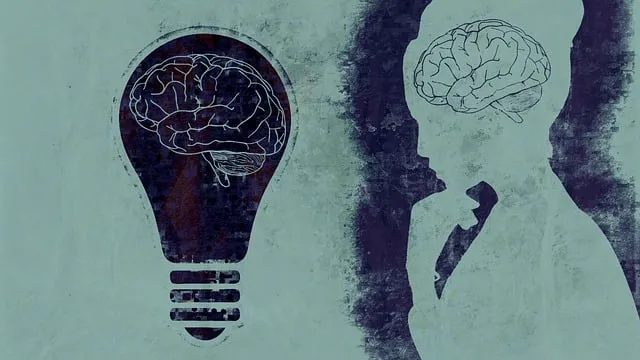The Kaiser Permanente mental health access center in Longmont is a leading facility using innovative practices for accurate diagnoses and holistic treatment, prioritizing Cultural Sensitivity, risk management, digital tools, comprehensive training, patient-centric approaches, and stigma reduction to enhance mental wellness for diverse individuals.
Mental illness diagnosis accuracy is a critical aspect of patient care, and continuous improvement efforts are essential. This article explores innovative initiatives taken by organizations like Kaiser Permanente’s Mental Health Access Center and Longmont Community to enhance diagnosis accuracy. We delve into their strategies, including the use of advanced tools and professional training, focusing on patient-centric approaches that prioritize personalized care. By examining these efforts, we aim to highlight best practices that could revolutionize mental health assessment.
- Evaluating Kaiser Permanente's Mental Health Access Center
- Longmont Community: Enhancing Diagnosis Accuracy
- Innovative Tools for Mental Illness Assessment
- Training Professionals: A Key to Improvement
- Patient-Centric Approaches: Personalized Care in Longmont
Evaluating Kaiser Permanente's Mental Health Access Center

The Kaiser Permanente Mental Health Access Center in Longmont stands as a beacon of hope and progress in the realm of mental wellness. This innovative center has been meticulously designed to improve diagnosis accuracy for various mental health conditions, offering comprehensive services that cater to diverse patient needs. Through its state-of-the-art facilities and a team of highly skilled professionals, the center provides a safe and supportive environment for individuals seeking help for their mental health concerns.
Evaluating this center’s approach, one notices a keen emphasis on Mental Wellness Journaling Exercise Guidance, which serves as a powerful tool for self-reflection and understanding. Additionally, Communication Strategies play a pivotal role in fostering open dialogue between patients and healthcare providers, ensuring that every individual receives tailored care. The center’s holistic approach integrates these strategies into its treatment plans, aiming to enhance not just diagnosis accuracy but also the overall well-being of its patrons.
Longmont Community: Enhancing Diagnosis Accuracy

The Longmont Community has been actively enhancing mental illness diagnosis accuracy through initiatives centered around the Kaiser Permanente Mental Health Access Center. One key strategy involves promoting resilience building within the community, empowering individuals to better understand and manage their mental health. This approach not only improves access to mental healthcare but also ensures that support systems are in place for long-term recovery.
Additionally, the center emphasizes Cultural Sensitivity in Mental Healthcare Practice, recognizing the importance of diverse perspectives in diagnosis. By incorporating cultural considerations, professionals can avoid misunderstandings and provide more accurate assessments. Moreover, Risk Management Planning for Mental Health Professionals is a crucial aspect of these efforts, ensuring that practitioners are equipped with strategies to mitigate potential risks and improve diagnostic reliability.
Innovative Tools for Mental Illness Assessment

In recent years, efforts to enhance mental illness diagnosis accuracy have led to the development of innovative tools and resources. One notable example is the Kaiser Permanente Mental Health Access Center in Longmont, which utilizes advanced assessment techniques and technology to improve diagnostic precision. This center integrates various methods, including digital screening tools, AI-assisted analysis, and comprehensive patient history reviews, to offer more accurate and timely diagnoses.
These advancements are crucial in addressing mental health concerns with the necessary sensitivity and accuracy. The Kaiser Permanente initiative also emphasizes the importance of Cultural Sensitivity in Mental Healthcare Practice, ensuring that diverse patient populations receive assessments tailored to their unique backgrounds and experiences. Furthermore, its work complements ongoing Mental Health Policy Analysis and Advocacy efforts, aiming to reduce the stigma surrounding mental illness by promoting evidence-based assessment practices.
Training Professionals: A Key to Improvement

At the Kaiser Permanente Mental Health Access Center in Longmont, efforts to enhance diagnosis accuracy revolve around comprehensive professional training. This initiative recognizes that mental illness diagnosis is a complex process, often influenced by subtle symptoms and individual differences. By providing ongoing education and skill-building sessions for healthcare professionals, the center aims to reduce misdiagnosis rates and improve patient outcomes.
The Mental Health Education Programs Design focuses on equipping practitioners with advanced diagnostic tools and techniques. Additionally, Mental Wellness Coaching Programs Development plays a pivotal role in fostering empathetic and nuanced approaches to understanding mental illness. These training programs not only address technical aspects but also target the Mental Illness Stigma Reduction Efforts, creating an environment where patients feel comfortable seeking help without fear of judgment.
Patient-Centric Approaches: Personalized Care in Longmont

In Longmont, Kaiser Permanente’s mental health access center is pioneering patient-centric approaches to enhance diagnosis accuracy and personalize care for each individual. By focusing on the unique needs and experiences of every patient, healthcare professionals strive to create a supportive environment that fosters open communication. This tailored approach leverages tools like Inner Strength Development and Burnout Prevention strategies, ensuring patients feel heard and understood. Effective communication becomes the cornerstone of this process, as it helps establish trust and encourages patients to share their stories more openly, leading to more accurate diagnoses and effective treatment plans.
The pursuit of enhanced mental illness diagnosis accuracy is a multifaceted endeavor, as evidenced by initiatives like those at the Kaiser Permanente Mental Health Access Center and Longmont Community. By evaluating established centers, such as Kaiser’s, and implementing innovative assessment tools, we can elevate standards across the board. Training professionals remains a cornerstone strategy for improvement, while patient-centric approaches ensure tailored care that reflects the unique needs of individuals in Longmont and beyond. These efforts collectively underscore the importance of continuous evaluation and adaptation in meeting the evolving challenges of mental health diagnosis.






